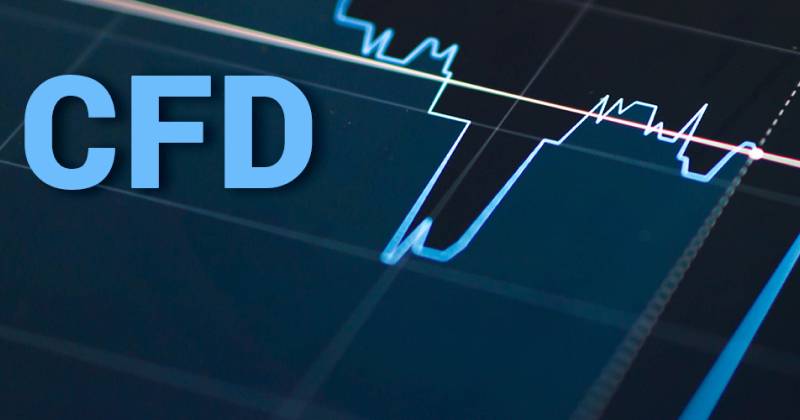 The term trading sometimes has a different meaning compared to the term investing. Market pundits generally view trading as a process in which a trader generates multiple transactions over a specific period. This definition corresponds to the term investing, where the reference is that a trader is taking a few positions over a period. The upshot is that both traders and investors are looking for profits in the capital markets. What is clear is that different types of securities can be used to take a view.
The term trading sometimes has a different meaning compared to the term investing. Market pundits generally view trading as a process in which a trader generates multiple transactions over a specific period. This definition corresponds to the term investing, where the reference is that a trader is taking a few positions over a period. The upshot is that both traders and investors are looking for profits in the capital markets. What is clear is that different types of securities can be used to take a view.
Investors and traders will trade securities such as commodities, stocks, indices, cryptocurrencies, and forex. To access all of these securities, they need to trade these products directly or use contracts for differences (CFDs) that trade the underlying product. There are several advantages to using contracts for differences. CFD trading provides you with leverage using a margin account. It allows you to trade all of the products you are interested in trading in one account. CFD trading allows you to enhance your gains from small moves and buy and sell short every security your CFD broker tracks. The available strategies include direction and relative value trades, which might not be as direct if you use a non-CFD trading account.
What is a Contract for Differences?
A contract for difference is a contract between two counterparts. The contract tracks the movement of an underlying security, and the payout is the difference between the purchase price and the sales price. What is CFD trading can be answered by saying that it provides an investor with a way to invest in price movements in both directions of an underlying product without owning the underlying product.
If you want to trade CFDs you need to use a CFD broker. A CFD broker is a market maker that provides clients with a bid and an offer for where they will purchase and sell CFDs that track different assets. The CFD value does not equal the underlying value of the security. The CFD only provides you with the differences in the value from when you purchase the CFD and sell the CFD. For example, when buying a crude oil CFD, you are not buying oil at $100 per barrel. Instead, you are purchasing a security that tracks the movements of crude oil prices. The CFD value could be any number, but it is essential to track crude oil movements.
What Does CFD Trading Involve?
To get involved in CFD trading, you need to use a CFD broker. A CFD broker is a company that provides access to CFDs. Some CFD brokers are regulated, and some are not. A CFD broker will ask you for several pieces of information before they allow you to open an account and allow you to trade. Some of the information they collect will be used to determine if they should allow you to open a margin account. A margin account is an account where you essentially borrow capital against your securities. The margin account allows you to use leverage to trade the market, which is an essential difference between CFD trading and other types of trading. Leverage allows you to enhance your gains, but it cuts both ways and can also accentuate your losses.
Your CFD broker will provide products that track underlying assets and allow you to use leverage. The leverage can be as high as 400-1 on some products. Four hundred to one leverage means that you only need to post $0.25 for something that has a value of $100, as an example. Your CFD broker uses a mathematical process that tells them how much equity you need to have in your account at all times to cover any losses. They will not take losses for you. Suppose the value of your account comes within a range of you experiencing negative equity in your account (your losses are more significant than your equity). In that case, you will receive a margin call. If you don’t immediately add more capital to your account, your CFD broker will have the right to liquidate your positions. Make sure you read the fine print and understand how this can occur.
What is the Difference between CFD trading and other Security Trading?
There are several advantages to CFD trading, including leverage. Leverage can enhance both your profits and your losses. In the example of 400 to one leverage, if you made $10 an asset that cost $100, you would make 10%. Using 400 to one leverage, you would make 4,000% ($10 / $0.25).
CFD trading also allows you to trade multiple assets in one place. You can trade stocks, commodities, indices, cryptocurrencies, and forex in one account. You don’t need to open several accounts to have this ability. CFD trading also allows you to use relative value trades. You can purchase a commodity and simultaneously sell a stock. In this case, you are looking for commodity returns to outperform the stock price returns. When you trade other methods, this process is arduous and could be impossible.
CFD trading also uses margin netting, which is impossible if you have multiple accounts. If you have gained in one CFD, they can offset the losses in another CFD. You can also use different amounts of leverage when you trade CFDs. Most CFD brokers use different amounts of leverage based on the volatility of each product.
The Bottom Line
The upshot is that CFD trading provides several benefits relative to other securities trading. One of the most apparent benefits is that you never have to own the underlying security. When you purchase a CFD, you buy a contract that provides you with the difference in the purchase price and the eventual sales price. CFDs offer you leverage via a margin account. The leverage can be as high as 400, significantly enhancing your returns. Remember, leverage cuts both ways and can make trade riskier. CFDs allow you to net your margin. They can also allow you to trade long and short positions in different assets, which can be difficult if you are trading using multiple non-CFD accounts.

Hernaldo Turrillo is a writer and author specialised in innovation, AI, DLT, SMEs, trading, investing and new trends in technology and business. He has been working for ztudium group since 2017. He is the editor of openbusinesscouncil.org, tradersdna.com, hedgethink.com, and writes regularly for intelligenthq.com, socialmediacouncil.eu. Hernaldo was born in Spain and finally settled in London, United Kingdom, after a few years of personal growth. Hernaldo finished his Journalism bachelor degree in the University of Seville, Spain, and began working as reporter in the newspaper, Europa Sur, writing about Politics and Society. He also worked as community manager and marketing advisor in Los Barrios, Spain. Innovation, technology, politics and economy are his main interests, with special focus on new trends and ethical projects. He enjoys finding himself getting lost in words, explaining what he understands from the world and helping others. Besides a journalist he is also a thinker and proactive in digital transformation strategies. Knowledge and ideas have no limits.



































